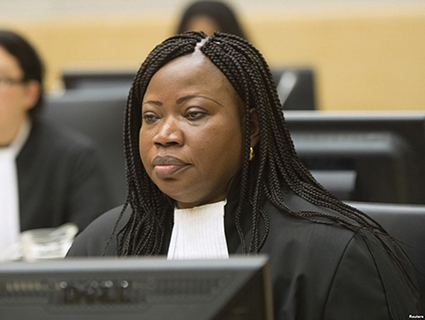ICC Authorizes Investigation into 2008 War, Russia Unimpressed
The International Criminal Court, the world’s foremost body in regards to jurisdiction on war crimes, is set to investigate some of the most disturbing aspects of the 2008 war between Georgia and Russia. On January 27, the Office of the Prosecutor (“Office”) of the International Criminal Court (“ICC”) was authorized by Judges in the Pre-Trial Chamber I to commence an investigation into the alleged ICC crimes occurring on the territory of Georgia between 1 July 2008 and 10 October 2008.
The alleged crimes are attributed to the three parties involved in the armed conflict – the Georgian armed forces, the South Ossetian forces, and the Russian armed forces. At this early stage, the appointed ICC prosecutor, Fatou Bensouda has paid a visit to Georgia. Recently, she revealed further details regarding the investigation in in an exclusive interview with the Public Broadcaster.
Bensouda said that when there is enough evidence to prove this or that person’s guilt, she will require the issuance of an arrest warrant.
“We have information that there were attacks on peacekeepers from both Russia and Georgia… The Court does not settle disputes between countries. It is not our mandate to talk about the territorial borders either. Crimes against humanity, war crimes and genocide are within our jurisdiction. The Office will investigate, for example, murders of peacekeepers. We have information that there were attacks on peacekeepers both from Russia and Georgia. We are going to obtain information about this. Our goal is to reveal individuals responsible for the crime. This requires solid evidence. Only evidence will lead to individual persons and then we will demand issuance of an arrest warrant. It can be one person or more than one,” Prosecutor Bensouda said.
The Prosecutor also noted that her Office is monitoring the process of investigation underway in Russia. “As for Georgia, it ceased the investigation in March last year. Georgia is a member of the Rome Statute (ICC treaty that went into force in 2002), meaning that it is obliged to investigate crimes committed on its territory. However, if the country is unable to do it, our office gets engaged in the process,” she said, adding that she needs close cooperation with Georgia.
Speaking of Russia, which is not a signatory state of the Rome Statute, Official Moscow was none too revealing with how the investigation is going. Russia’s Ministry of Justice issued a statement confirming it would not cooperate with the investigation, while earlier the spokesperson for Russia’s Foreign Ministry, Maria Zakharova, flatly voiced that Moscow was “unhappy and disappointed” with ICC’s recent activities and hinted at a possible reviewing of its relations with the Hague. The official justification from Kremlin officials was somewhat vaguer, attributing the refusal to participate to the fact that Russia hasn’t yet ratified the Rome Statute, which the country signed in 2000. The Georgian side, on the other hand, offered full support to the investigation. Less than subtle hints were also made by Georgian officials, hinting it wouldn’t be in the best interests of Moscow to see the issue solved and investigated by an independent, objective third party.
As to how long the investigation will last, Bensouda said that it depends on how quickly she will be able to find the facts. The Prosecutor said that the investigation lasted 1 year in Uganda, 18 months in Congo, and 3 years in other similar cases.
Vazha Tavberidze












